Mass Spectrometry Outreach in Nepal
Outreach 20 April 2023
Dr Giles Edwards MRSC
The Recycling Organisation for Research Opportunities or RORO for short was founded as a registered in charity in 2009. The main mission objective is to provide access to sophisticated scientific analytical instrumentation to academics in developing countries that cannot afford such capital assets that we often take for granted. It is also worth noting that the price of instrumentation in developing countries may cost more than twice what we would pay for it in the UK due to a protracted supply chain including various distributors that each take their commission.
The main instrumentation that is offered for donation by RORO are mass spectrometry products, this in part is due to the trustees having various links with that industry including the Waters Corporation who have their mass spectrometry HQ located in Wilmslow.
Over the years RORO has collaborated with organisation such as the Royal Society of Chemistry who have assisted with financial resource for shipping and paying RORO expenses associated with the installation and training. RORO has donated instrumentation to Kenya, Ghana, Ethiopia, Uganda, Egypt, Namibia, Oman, Pakistan, Mongolia, Cameroon, South Sudan and Nepal.
The recent project completed at the end of June 2022 was to supply a liquid chromatography tandem mass spectrometry system (LC-MS/MS) to the Nepal Academy of Science and Technology (NAST). The instrument was a Waters Acquity UPLC and Xevo TQD that were donated by the Waters Corporation. The donated instrumentation was tested in the Photon Science Institute and packed with the assistance of nuclear physics PhD students before being shipped off to Kathmandu by air freight funded by the RORO charity.

Once the shipment arrived I managed to get the system installed remotely with the help of Saroj Subedi from JHS Analytic Traders, however, there were some maintenance and application- based training that required on site assistance. The RORO charity did not have sufficient funds or time to visit, so the system waited patiently until funds were available.

TQD & Acquity UPLC mass spectrometry system (LC-MS/MS) installed remotely at NAST
The Nepal Academy of Science and Technology (NAST) is the best place in Nepal to house sophisticated scientific instrumentation. There is often load sharing when there is high electricity demand but the power to NAST is reputed to stay on with UPS and backup generator, there are also clean airconditioned labs which are imperative in order to satisfy the site requirements. In terms of other instrumentation there is not much there to be honest, there is a new pilot plant sized super critical fluid extraction unit for processing natural products and a gas chromatography mass spectrometry system (GC/MS) and some smaller bits of kit. The addition of the LC-MS/MS is critical to enable on-line analysis of more polar analytes including the characterisation of potential lead active pharmaceutical compounds in natural products.
The ability to know what you are separating or know what you have made in a lab is something at the University of Manchester we take for granted, in other countries they often have to pay excessively high prices for contract analytical work and also have to suffer excessive lead times for their results. The availability of these analytical resources on site is mission critical in terms of granting access to research opportunities.
RORO had been working with NAST since 2016 when we installed a previous generation of Waters LC-MS/MS instrument. The system worked for a while but unfortunately developed a fault which could not be resolved remotely. I used to work for the Waters Corporation in a previous role as a mass spectrometer engineer and travelled to many sites across the globe. Before I booked my flights I would organise for all of the possible parts that may be required to be ready for me on site for my arrival. This luxury is not really possible when volunteering for a mass spec charity, a swap out was the easiest option so the original system could be repaired in the UK rather than on site in Nepal with limited resources.
NAST (or rather Nepal) needed a new LC-MS/MS instrument and they did not have sufficient funding to purchase a new instrument. Through the RORO charity a new system was sourced from the Waters Corporation and its testing and shipping was organised and completed at the University of Manchester.
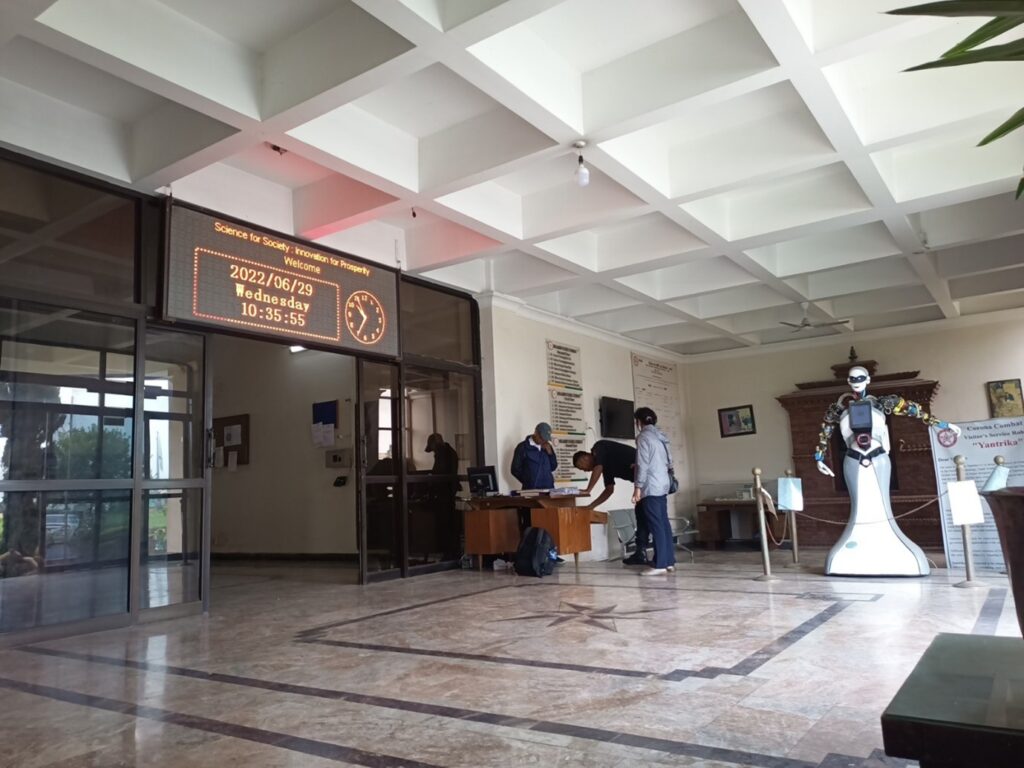
Following additional funding from the University of Manchester Better World Funding scheme I boarded my flight which took more than 15 hours, then I was in Nepal!
My trip coincided with a conference being hosted by NAST, which enabled me to also give a talk on the work we are doing in Manchester on Collinear Resonance Ionisation Spectroscopy.
Kathmandu is still very polluted there is very little evidence of catalytic converters or AdBlue for any or the various means of transportation just thick black smoke. I was met at the airport by my friend Sajan, who I last met in 2016 when installing a previous LC-MS/MS instrument, he took me to a hotel a bit higher in the mountain which was a little less polluted, but also not too far from the city centre.
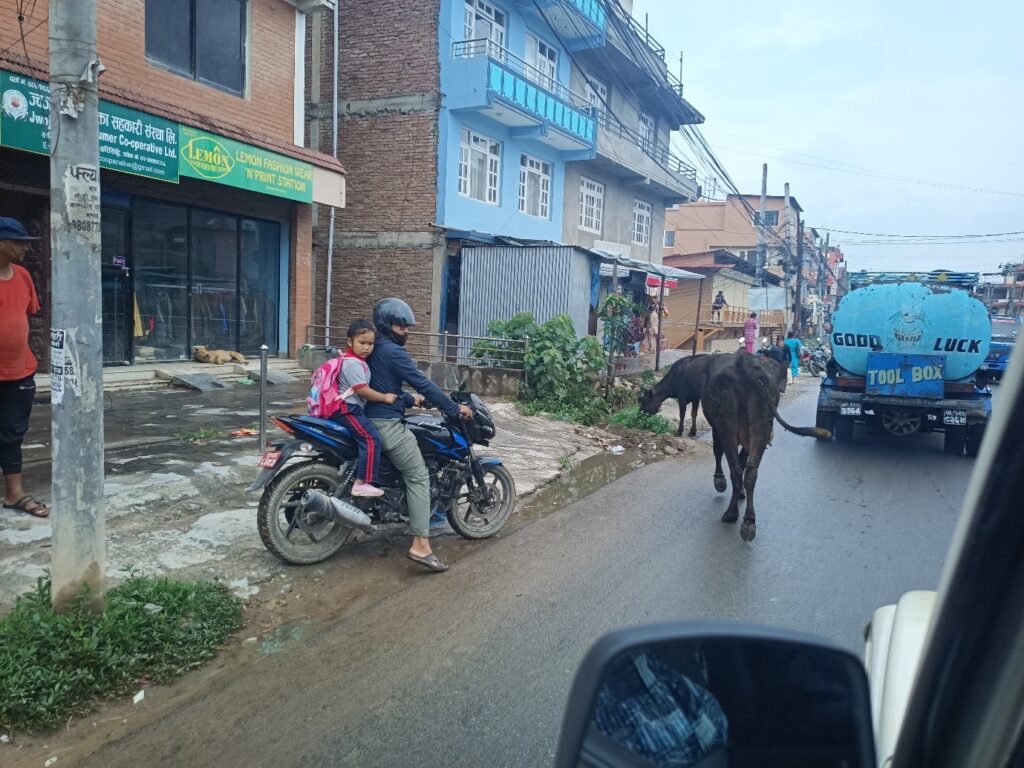
The installation went to plan, the nitrogen generator that had been donated by Peak Scientific for the previous mission in 2016 was still going strong. The 14 participants on the course were all eager to learn about LC-MS/MS, most had previous experience with liquid chromatography but no exposure to mass spectrometry. The 5-day course is split roughly 50/50 between classroom and practical, all did very well and are now well versed in all aspects of LC-MS/MS, we developed methods for the analysis of various pharmaceuticals.
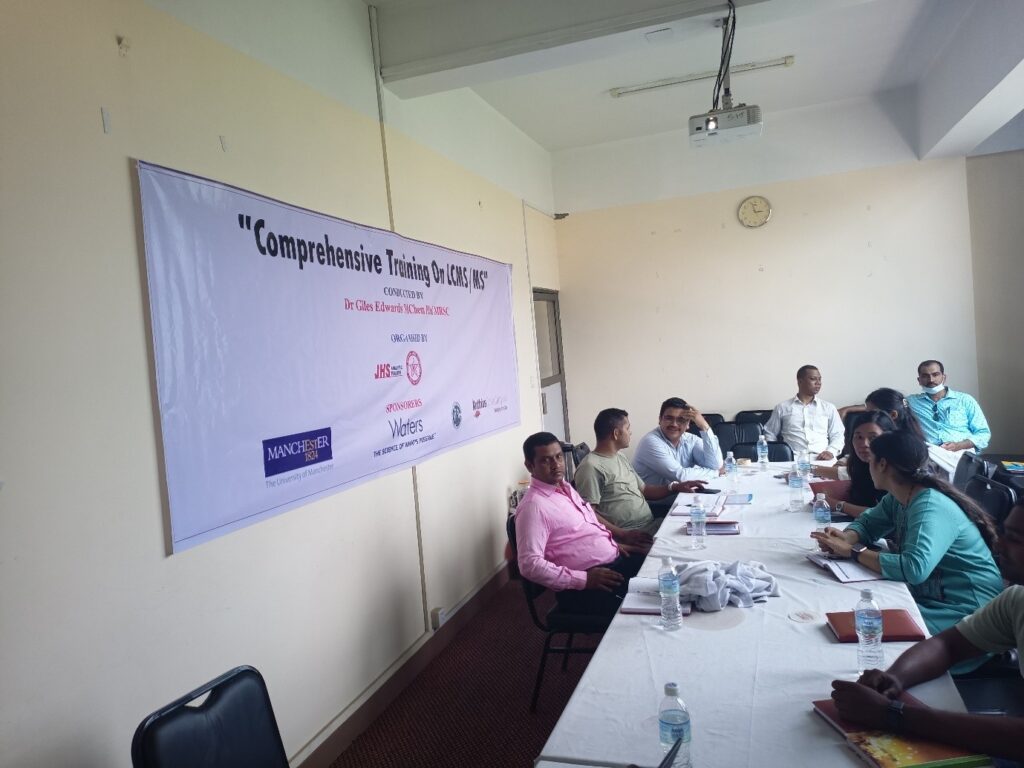
It was interesting to learn that the mass spectrometry system we were using was the only functional LC/MS system in the whole country. In terms of capacity, building the ability to perform your own analysis is critical to the development of a knowledge based economy.
“Thank you for your valuable time here in Nepal. The training you conducted was so fruitful.” – Saroj Subedi, JHS Analytic Traders
Once the training course had finished I had a day of rest which we spent visiting some of the amazing temples and I stayed the night with my friend Sajan and his family in the countryside close to Kathmandu.
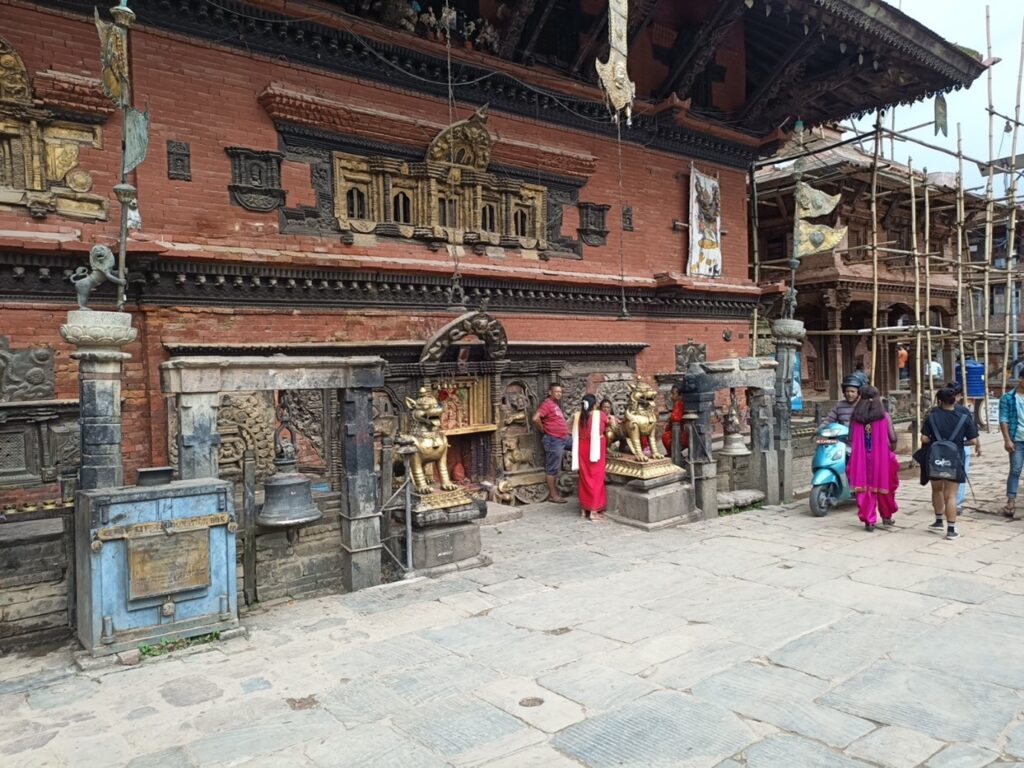
On the Sunday before we started the main body of the training we attended the opening of the 9th National Conference on Science and Technology, myself as an invited speaker. The conference was opened by the Prime Minister of Nepal who also chaired the first session – lots of police, army and secret service staff were in attendance to keep the peace.
My talk was scheduled for the Monday and was on the topic of ‘Mass Spectrometry for Society and Innovation for Prosperity’. A variety of mass spectrometry applications were covered ranging from environmental monitoring through to clinical. I finished the talk with an overview of the work we are doing here at Manchester; hyphenating the Collinear Resonance Ionisation Spectroscopy (CRIS) technique with conventional mass spectrometry platforms for enhanced abundance sensitivity and selectivity for isotope ratio elemental analysis.
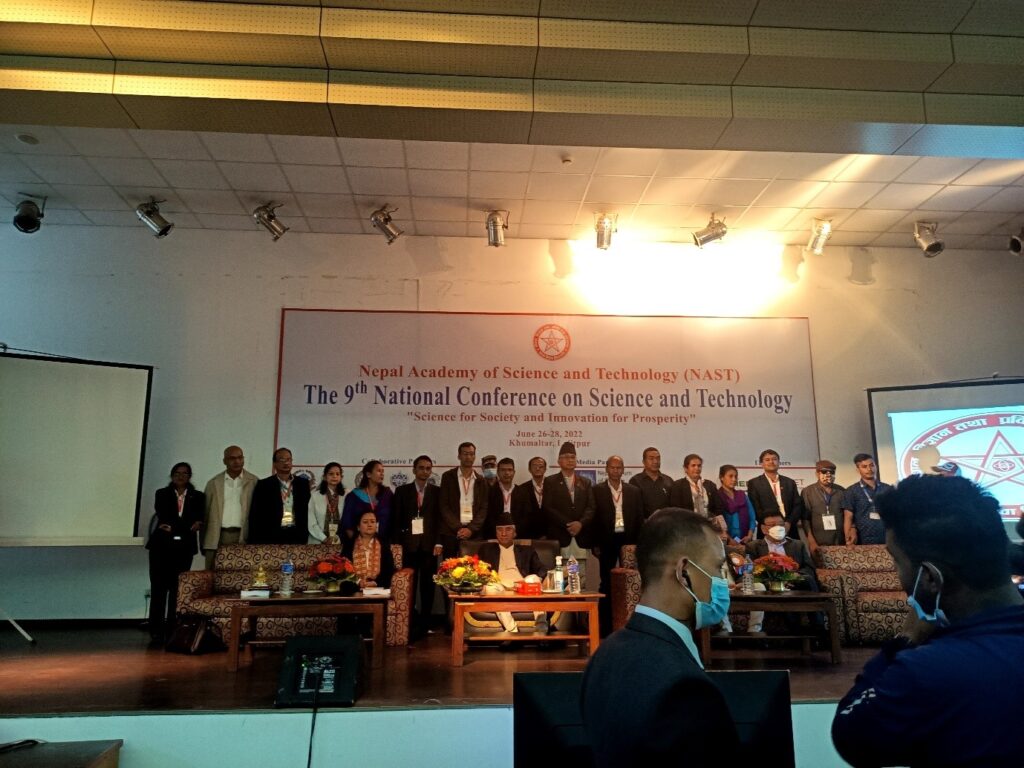
The keynote speakers before me were amazing, in particular Prof. Dr Basant Pant who is the top Nepalese pioneering neurosurgeon, who gave a fascinating talk on the development of radiofrequency lesioning through deep brain stimulation which has been used to treat various neurological disorders including epilepsy. Dr Pant had also successfully developed 3D printed cranial implants that can be used in place of titanium plates for severe head trauma, the method used is significantly cheaper and works very well. Prof. Emeritus. K.P. Mishra from the Bhabha Atomic Research Centre in India followed with an overview of emerging advances in fighting cancer with strong link to traditional medicines.
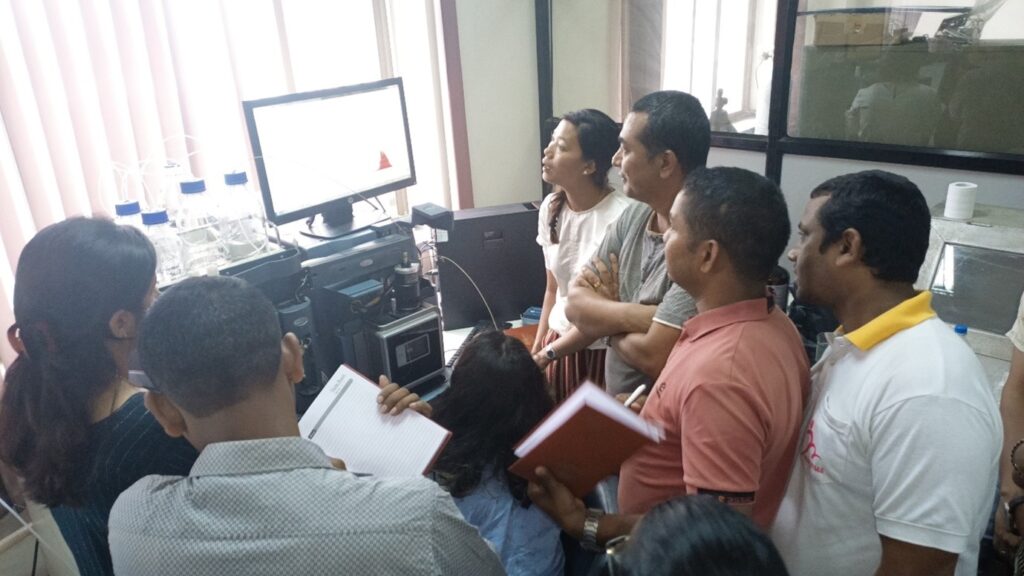
When the conference finished our group of LC-MS/MS trainees reconvened in the lab for some more practical based sessions on liquid chromatography method development, compound specific tuning and interpretation of LC/MS mass spectra.
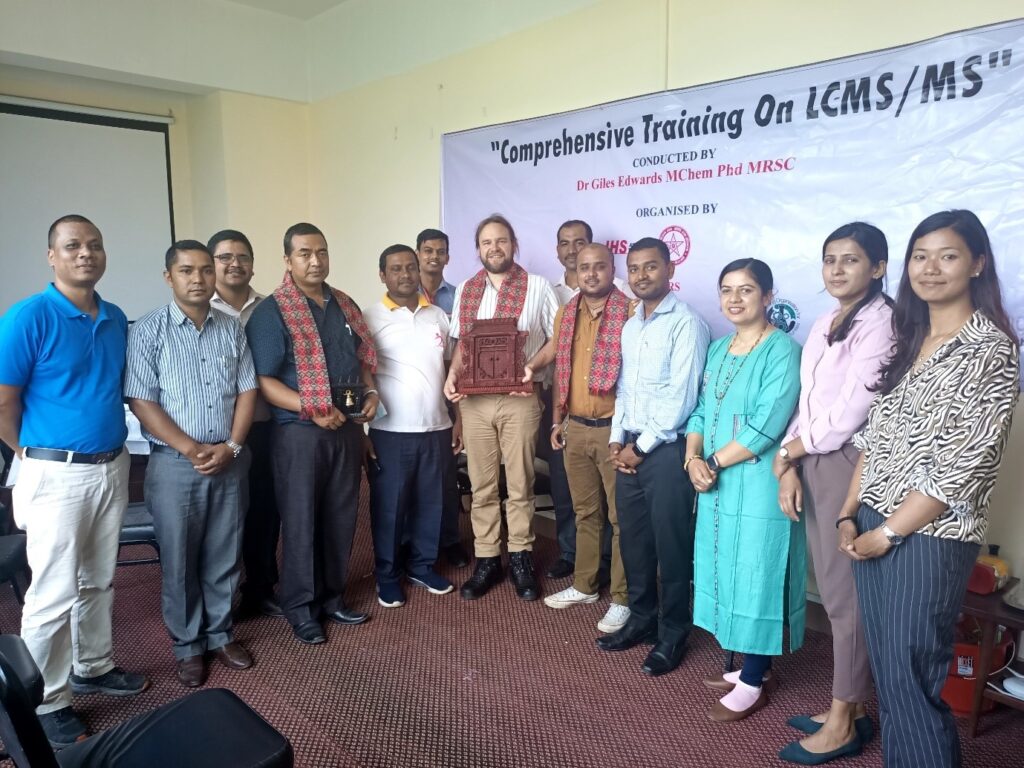
On my last day in Kathmandu we caught the bus to Tribhuvan University which is the oldest university in Nepal. By chance the biotechnology group were also running a workshop on high performance liquid chromatography and I was invited to give a lecture there which was great, I also saw their physics department.
As we are all aware physics in the main is ideally a practical based subject. The equipment they have was limited but they made up for it by running more theoretical modules. I would implore any groups here at Manchester to consider the donation of working equipment to universities in developing countries – international collaboration is also a very real option for any academic there are plenty of opportunities out there.
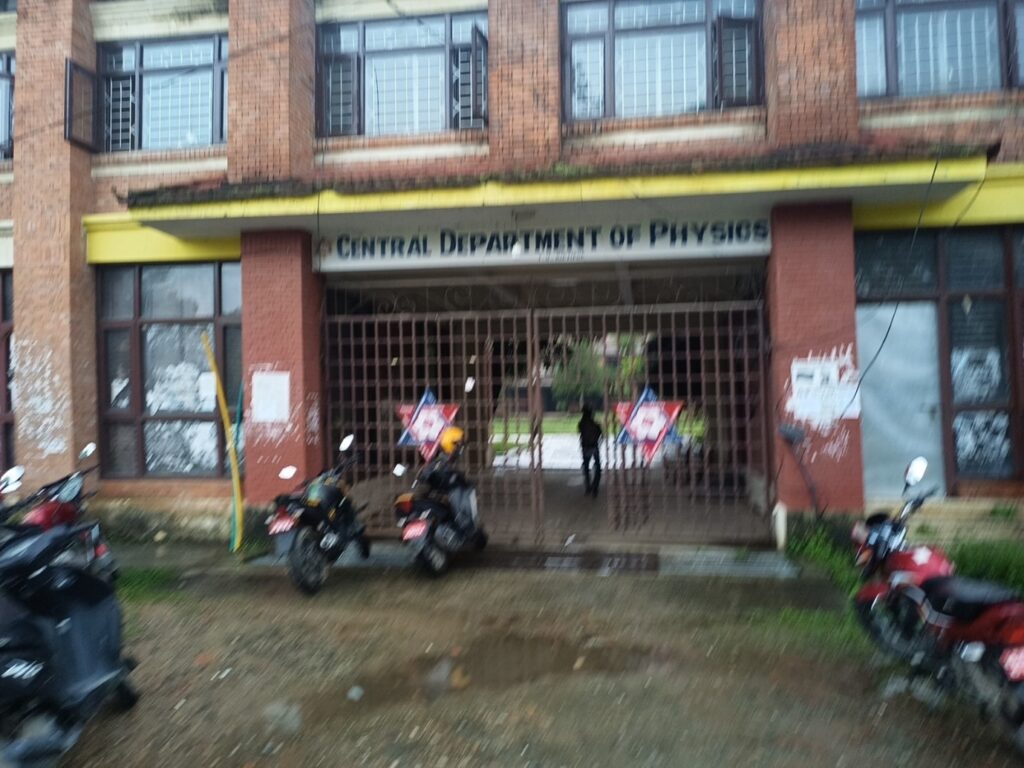
This social responsibility project would not have happened without the help and assistance from a variety of sources. The impact is huge and has made a significant contribution towards capacity building on a national level which is the main mission of the Recycling Organisation for Research Opportunities charity. The Nepal Academy of Science and Technology is the perfect host for the instrumentation, Nepalese academics will have access for teaching and research projects. The University of Manchester covered the cost of my flight to visit NAST, complete the installation and also deliver the 5 day LC-MS/MS training course which was very gratefully received. The use of the training material was donated by Anthias Consulting Ltd, and JHS Analytic Traders based in Nepal organised the training session and also covered the catering costs.
The training course was accredited by the Royal Society of Chemistry and counted towards the participants CPD. We had some amazing food, lots of Dall Bhat and black tea. The Waters Corporation supplied the Waters Xevo TQD and Acquity UPLC and Peak Scientific who had previously donated a brand-new nitrogen generator.
A huge thank you to everyone who has made this possible.
International OutreachMass SpectrometryPhysics OutreachSocial ResponsibilitySustainability


Fantastic synopsis Gilles. Really great to hear about your outreach work and all the incomprehensible physics jargon. I can only imagine how useful and encouraging your participation is to their academic careers and aspirations.
Very inspiring and best of luck with it all.